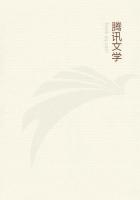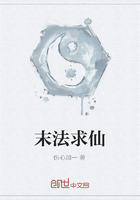My brother Fitzhugh was to be married that autumn. This event, so soon to take place, gave my father great pleasure. He was an earnest advocate of matrimony, and was constantly urging his sons to take to themselves wives. With his daughters he was less pressing. Though apparently always willing to have another daughter, he did not seem to long for any more sons. He thus writes to my brother when his engagement was formally announced to him:
"Lexington, Virginia, September 20, 1867.
"My Dear Fitzhugh: I have been anxious for some time to write to you, to express the pleasure I have felt a the prospects of your marriage with Miss Bolling; but sickness has prevented, and I am still so feeble that I cannot attend to the pressing business connected with the college. As you know how deeply I feel all that concerns you, you may feel assured of the pleasure I derived from your letter to your mother informing her of your engagement. I have the most pleasing recollection of 'Miss Tabb,' and of her kindness to me, and now that she has consented to by my daughter the measure of my gratitude is filled to overflowing. I hope she will not delay the consummation, for I want to see her very much, and I fear she will not come to see me until then. You must present her my warm love, and you both must accept my earnest prayers and most fervent wishes for your future happiness and prosperity. I am glad that your house is progressing and that your crops promise well. I hope that you soon will be able to come and see us. Your mother, I hope, has derived some benefit from her visit to the Springs. Her general health is improved, but I see no relaxation in her rheumatic complaint. The girls are quite well, and all send love....
"Your affectionate father, "R. E. Lee.
"General William H. F. Lee."
The young lady who was so soon to become a member of his family was Miss Mary Tabb Bolling, the daughter of Mr. G. W. Bolling, of Petersburg, Virginia. Her father had been very kind to General Lee during the eventful months of the siege of that town, and his daughter had been often to see him and was a great favourite of his. My brother was especially anxious that his father should be present at his wedding, and had been urging him to make his arrangements to come. The sickness to which he frequently alludes in his recent letters had been annoying him since his return from the White Sulphur Springs up to this time, and he now writes proposing that my brother and bride should come to him instead of his going to the wedding:
"Lexington, Virginia, November 15, 1867.
"My Dear Fitzhugh: I received this morning your letter of the 13th, and am glad to hear of your safe arrival and of the favourable condition of things at your home. I was afraid your house would not be ready at the time supposed, but I would not delay the wedding on that account--you can exist without it. We have one here at your service, though a poor one. I am obliged to you for having arranged about my clothes. Upon reflection, I think it better not to go to the White House and Romancoke before the wedding. You and Robert could hardly pay the necessary attention to business matters with your hands filled with love and matrimony. I think of catching up Rob and marrying him to some of my sweethearts while I am down, so as to prevent the necessity from him to reach Petersburg by the 28th, and we have arranged to commence our journey on Monday night, 25th inst., at 12 M., so as to reach Richmond Tuesday evening, remain there the 27th and go to Petersburg the 28th. I do not think I shall be able to go to the White House at all. I should not be able to aid you or Rob, my only object, and would put you to much trouble....
We are all as you left us, and miss you and Mildred very much.
"Very affectionately, your father, "R. E. Lee.
"General William H. F. Lee."
So it was all settled satisfactorily; my brother gained his point, and my father arranged his affairs so that he could absent himself without detriment to his work at the college. He left on the appointed day and hour, and the morning after arriving in Richmond, writes my mother:
"Exchange Hotel, Richmond, November 26, 1867.
"My Dear Mary: We reached here yesterday about 4 P. M., after a not uncomfortable journey, and found Fitzhugh waiting for the important event. I doubt whether his house will be finished, from his account, till January, though he thinks it will. His plans, I believe, as far as he can form them, are to leave Petersburg the morning after the wedding for Baltimore, where they will probably send a week gathering up their furniture, etc., and after that all is undetermined.
I renewed the invitation for their visit to us, but he could not decide. Robert is expected to-morrow. Mildred is well and seems to be perfectly happy, as she had on, last evening, a dress about two yards longer than Norvell's. I saw Mr. Davis, who looks astonishingly well, and is quite cheerful. He inquired particularly after you all. He is at Judge Ould's. No one seems to know what is to be done. Judge Chase had not arrived yesterday, but it was thought probable he would reach here in the ten o'clock train last night. I have not heard this morning. I will present myself to the court this morning, and learn, I hope, what they wish of me.
Williams Wickham is here, and will attend the wedding. Annie will also go. Fitzhugh is to go out to Hickory Hill this morning, and return this afternoon, to pay his adieux. Mrs. Caskie was not well last evening. The rest as usual, and send much love. Custis is well, and I have my clothes. I left my sleeve-buttons in my shirt hanging up in my dressing-room. Ask Cornelia to take care of them.
Mr. Alexander said he would send you up some turkeys, and Colonel Johnston, that he would help you revise the manuscript. It is time I should get my breakfast, as I wish to transact some business before going to court. Give much love to the girls and everybody.
I hope you are well and will want for nothing while I am away. Most truly yours, "Mrs. M. C. Lee. R. E. Lee."















